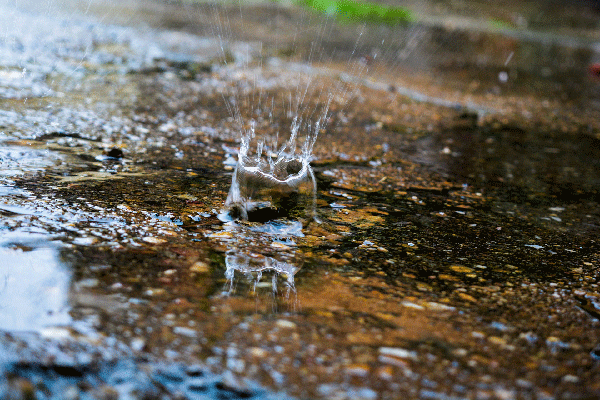Protecting the quality and safety of your water supply means protecting your well and the area surrounding it by 1) not storing hazardous materials including fuel, metals and chemicals near the well, 2) keeping livestock including horses away, and 3) limiting applications of lawn chemicals immediately around the well. However, to protect your water supply you need to look beyond the area immediately around your well.
Stormwater and Your Well
Rains that hit your roof, driveway, and other parts of your landscape end up as stormwater. Beyond the puddles and the annoyance of moving your landscaping mulch around, that stormwater can also be problematic to your drinking water supply. Stormwater can carry with it chemicals that you may have applied to your yard or even oils and other hazardous materials from your car among other things. That pollutant-laden stormwater can end up near your well and potentially introduce hazards to your water supply.
Managing Stormwater
A good practice is to take a moment to watch how stormwater flows away from your home or across your property during and immediately after rains. If you notice that stormwater is running into the vicinity of your well or that puddles are accumulating near your well make a plan to prevent stormwater from entering the area near your well.
Some easy and largely cost-effective methods to include in that plan include:
- changing the length or direction of your downspouts,
- installing a rain barrel to collect rainwater for reuse, or
- even adding mulch or different types of grasses or landscaping that can help slow retain or redirect stormwater.
Taking just a few moments to watch the raindrops and puddles splash is an easy but important step to safeguarding your water supply, your health and the environment.
For more information on how to protect your well and water supply visit Water.unl.edu: Residential Water.

